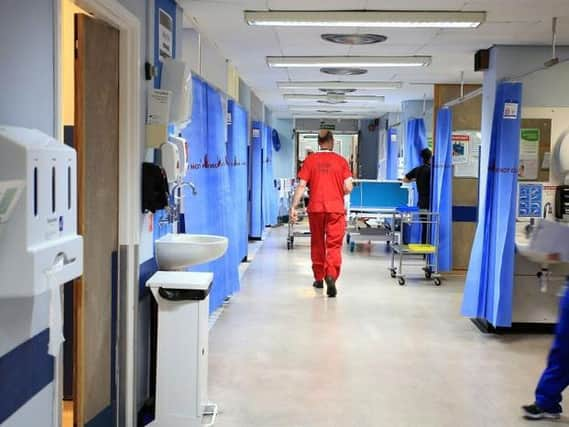Drop in admissions linked to antimicrobial resistance at Buckinghamshire Healthcare Trust


But with cases soaring elsewhere across England, researchers warn drug-resistant infections could pose a greater public health risk than Covid-19 unless urgent action is taken to tackle their rise.
NHS Digital data shows there were around 1,745 admission episodes with a diagnosis of antimicrobial resistance (AMR) at Buckinghamshire Healthcare NHS Trust in 2019-20.
Advertisement
Hide AdAdvertisement
Hide AdThat was down from 1,805 the previous year, although it was still far more than the 505 reported in 2014-15 – the earliest year with available data.
The figures, which are rounded to the nearest five, count the first period of care a patient has under a consultant and can include admissions for which AMR was the main reason, or a contributing factor.
AMR happens when germs build up resistance to treatments – such as bacteria to antibiotics – meaning the medicines can no longer fight infections they were developed to treat.
It has led to the emergence of so-called superbugs such as MRSA, which are resistant to various types of antibiotic. It can also hinder cancer treatments as patients become more vulnerable to infection.
Advertisement
Hide AdAdvertisement
Hide AdA recent World Health Organisation report warned the world was failing to develop “desperately needed” antibacterial treatments, despite the growing awareness of the urgent threat posed by AMR.
Across England, around 93,700 admission episodes were recorded in 2019-20 – up from 90,200 a year earlier and 64,300 in 2014-15.
The national figures include activity in NHS hospitals and some NHS-commissioned activity in the independent sector.
“The rising trend in antibiotic-resistant infections year on year highlights the increasing risk that antibiotic resistant infections pose to our society,” said Professor Colin Garner, chief executive of Antibiotic Research UK, a charity working to tackle the threat of drug-resistant infections.
Advertisement
Hide AdAdvertisement
Hide Ad“The Covid-19 pandemic has demonstrated what happens when the world is ill-prepared for the spread of infectious disease.
“Whilst Covid is a virus that is treatable through vaccination, there are no vaccines to treat the most common resistant infections.”
Prof Garner said the Government needs to commit more funding and resources to fighting AMR, adding: “Otherwise, we may be facing another pandemic, this time without the possibility of a vaccine.”
The British Society for Antimicrobial Chemotherapy, which campaigns to tackle AMR, said that some of the increase was due to improved recording.
Advertisement
Hide AdAdvertisement
Hide Ad“However, AMR increasingly presents a fundamental challenge to the continuing ability of the NHS to provide healthcare in areas such as intensive care, cancer services and surgery,” said Dr David Jenkins, president-elect of BSAC.
The rise of drug-resistant bacteria could render such treatments “too risky” unless decisive action is taken, he added.
The charity is calling on the Government to appoint a cabinet minister with responsibility for coordinating efforts to fight AMR.
A Department of Health and Social Care spokeswoman said: “As the global Covid-19 pandemic has made clear, major outbreaks of disease and other public health emergencies are one of the most significant threats to any society, and this experience underscores our commitment to tackling antimicrobial resistance.
Advertisement
Hide AdAdvertisement
Hide Ad“The Government has a bold vision for containing and controlling AMR by 2040, which is supported by a five-year action plan and the investment of more than £360 million in research and development in this area.”